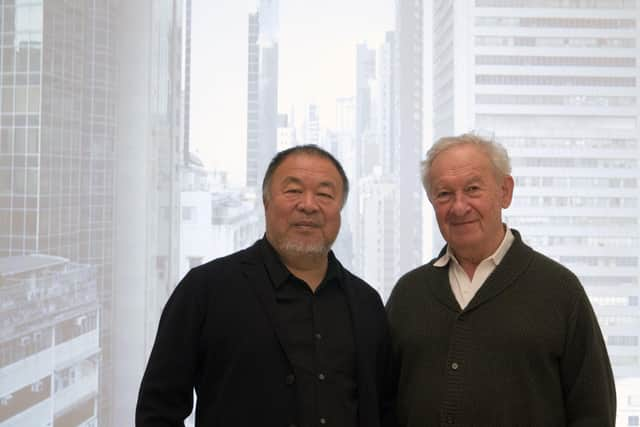Simon Schama’s History of Now
and live on Freeview channel 276
As well as writing about history, Sir Simon Schama has lived a fair bit of it too.
Born in 1945, on the night of the bombing of Dresden, Simon grew up as part of a generation determined to rebuild the world from the ashes of war.
Advertisement
Hide AdAdvertisement
Hide AdIn 1956, he won a scholarship to the private Haberdashers’ Aske’s Boys’ School in Cricklewood before studying history at Christ’s College, Cambridge.
Schama then worked for short periods as a lecturer in history at Cambridge, and wrote his first book, Patriots and Liberators, which won the Wolfson History Prize.
In 1980, Schama took up a chair at Harvard University, before returning to the UK 20 years later, having been commissioned by the BBC to produce a 15-part series of TV programmes as part of their Millennium celebrations.
The result was A History of Britain, the work for which Simon is probably still best known for.
Advertisement
Hide AdAdvertisement
Hide AdSince then, he has made several other acclaimed documentary programmes for the BBC, including Power of Art, The American Future: A History, The Story of the Jews, Schama on Rembrandt: Masterpieces of the Late Years, The Face of Britain, Civilisations and The Romantics and Us.
The historian’s latest project is apparently his most personal project to date, as Simon looks back at the dramatic history that has played out in his lifetime.
In the first of three programmes, he reveals the stories of artists and writers who have been at the forefront of the fight for truth and democracy, often at great personal cost.
In December 1936, a young Englishman headed to Spain to join those risking their lives for freedom. His name was Eric Blair, but he was better known as George Orwell.
Advertisement
Hide AdAdvertisement
Hide AdWe join his son, Richard Blair, in Barcelona, to tell the story of how a campaign of misinformation waged on the Spanish left by Stalin cost the lives of many of Orwell’s friends and comrades.
The experience fed into the creation of his literary masterpiece, 1984.
As the Cold War confrontation between freedom and totalitarian oppression intensified, Simon shows how the most powerful plea for the necessity of a free life came from inside the Soviet Union – in Boris Pasternak’s epic novel Dr Zhivago.
Pasternak’s grandson Pyotr takes us to his grandfather’s house on the outskirts of Moscow and tells of the risk he took in writing Dr Zhivago.
Advertisement
Hide AdAdvertisement
Hide AdSimon also meets Nadya Tolokonnikova, founding member of the punk collective Pussy Riot.


Now living in exile, she shares her enduring belief in art’s ability to speak truth to power.
Travelling to Prague, Simon explores how artists and writers in Czechoslovakia provided a powerful blueprint for cultural resistance in 1960s and 70s.
Writer Vaclav Havel was jolted into action by the treatment of his friends in the rock band The Plastic People of the Universe.
Advertisement
Hide AdAdvertisement
Hide AdWe meet band members Vratislav Brabenec and Josef Janicek, whose imprisonment inspired Havel to create Charter 77 – a manifesto calling on the government to respect international human rights agreements.
Simon visits Havel’s prison cell and reads from his The Power of the Powerless.
Tonight’s programme ends with an encounter with Ai Weiwei, who reveals his deeply personal journey towards becoming one of the world’s most famous dissident artists.